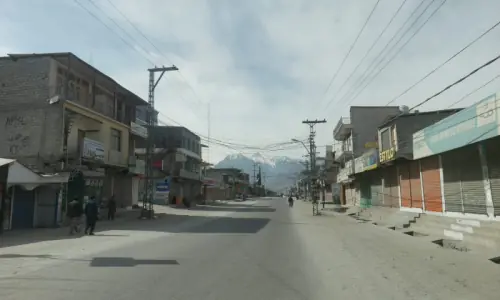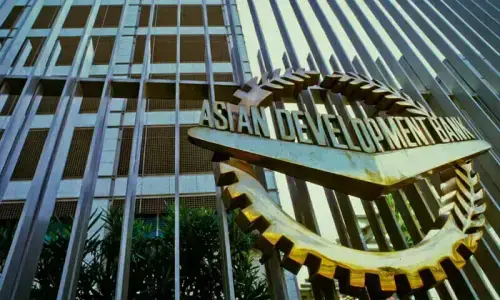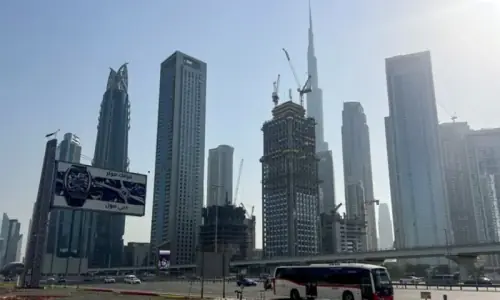Sardar Bahadur Sihar,
former minister for defence production
Having won two consecutive elections from my constituency NA-181, Layyah-I from the Pakistan Muslim League (PML-Q) platform, I was also certain of my victory in the 2013 general elections. But when the result was announced, the opposing PML-N candidate was declared victorious.
The returning officer benefited my opponent by posting presiding officers who were sympathetic to the ruling party at 35 polling stations, which eventually proved to be the deciding factor in raising the tally of votes cast in favour of my adversary.
Our polling agents weren’t provided the result forms by presiding officers, which they were bound to furnish under ECP rules.
After the day of polling, I was made to wait three consecutive days outside the returning officer’s office, who, despite repeated requests, didn’t allow me in or take my phone calls.
This is in stark contrast to the 2002 and 2008 elections when all contesting candidates, including myself, waited with the returning officer until the final result was announced.
I believe that systematic rigging was executed in south Punjab. Constituencies in this region are spread over vast, sparsely populated stretches of land. In such areas, my opponents, in connivance with election staff, marked union councils where they could easily tamper the results. In areas where my supporters and I had a strong presence, the presiding officer wouldn’t dare to change the results. But in areas where my opponents held sway, election staff allowed them to have a field day.
 |
Nadeem Afzal Gondal,
former chairman PAC
The 2008 general elections were far better managed than those in 2013.
Right up until the election day, despite our repeated requests, my camp was not provided in written the polling scheme of my constituency, NA-64 (Sargodha-I). The polling scheme carries important information, regarding polling stations and segregated lists of male and female voters. This proved such a major handicap for our voters, who had to dash from one polling station to the other to find the right place to cast their votes.
A lot of presiding officers were teachers, drawn from private schools, who played a key role in engineering results in areas where the contest was too close to call. Unlike the previous general elections, candidates’ polling agents weren’t allowed to keep an eye on ballot boxes. In the past, polling agents were allowed to keep a look out and make sure each voter only cast his or her own vote and did not indulge in ballot-stuffing.
But the most telling thing about these elections was that returning officers did not allow us inside their office while results were being compiled. All the candidates and their agents were asked to stay outside so they could engineer results according to their whims. In past polls, all candidates were present when the RO made his/her final count. Polling stations in the more remote areas of the constituency were also kept open and ballot boxes were stuffed with bogus votes. I learned after the elections that the presiding officers had extra ballot papers with them, which they used to rig the result in favour of the returned candidates.
 |
Sheikh Waqas Akram,
former education minister
There were several problems with the election process in 2013. The basic problem was that of the security apparatus.
In my constituency, NA-89 (Jhang-I), there were 277 polling stations. The whole district has a total police force of around 2,300, and if there are around 1,200 polling stations in the district, that comes to just about one policeman per polling station. That is just not enough of a police presence and my opponents took full advantage. The Sipah-i-Sahaba (SSP) holds sway in several parts of the constituency and they did everything in their power to ensure that my father, Sheikh Mohammad Akram, did not win the elections. On polling day, goons stormed women’s polling stations and harassed presiding officers. I personally know of a woman PO, who was accosted and manhandled on her way to the RO’s office.
In areas that were SSP strongholds, certain polling stations were kept open way past midnight and extra ballots were polled to facilitate our opponents.
Data entry operators also compounded our misery. The result from my polling station at the Hussainiya High School, where most of my family cast their own votes, was tampered despite the fact that the PO’s Form 14 contained the correct data. Over 500 votes that were polled for my father were transferred to my brother, who was merely the covering candidate. Even the RO was severely intimidated by thugs and they threatened to kill him and his family. He petitioned the local DPO and DCO, but to no avail. He then had to write to the Lahore High Court to request protection.
Published in Dawn, September 29th , 2014































